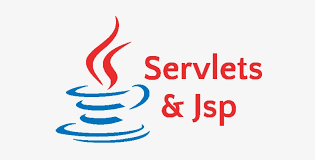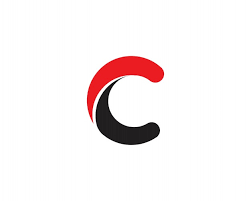B. Sc. Computer Science
Develop your abilities to achieve your potential.
Bachelor of Science – Computer Science
Learn skills required in information and communication technologies & systems to become a professional.
- Duration – 3 years (6 semesters) Full Time
- Eligibility – Class 12 (Science) from any recognized Board or equivalent with Mathematics at 12th
- Pattern – Choice Based Credit System – Semester Pattern
- Affiliated to Savitribai Phule Pune University
- Syllabus includes – Programming Languages like – C, Java, Python. Technologies like – Android App Development, HTML, CSS, JSP, SQL.
- Practical approach. Focus on practical to develop the skills.
- Guest Lectures and Seminars
- Additional Short Term Courses in latest technologies.
- Project work at Second and Third Year.
-

Python -

Advance Java -

C Programming
Jobs you can get after passing B.Sc. Computer Science:
| Programmer | Software Developer | Database Administrator | Web Developer | Software Tester |
Syllabus
First Year FYBCS Syllabus (CBCS Pattern implemented from 2019)
| First Year B.Sc. Computer Science | Semester – I |
| Subect | Papers |
| Computer Science | Programming in C |
| Database Management Systems | |
| Electronics | Semiconductor Devices and Basic Electronic Systems |
| Principles of Digital Electronics | |
| Mathematics | Matrix Algebra |
| Discrete Mathematics | |
| Statistics | Descriptive Statistics I |
| Mathematical Statistics | |
| Practical | Computers, Electronics, Maths, Stats |
| First Year B.Sc. Computer Science | Semester II – |
| Subect | Papers |
| Computer Science | Advanced C Programming |
| Relational Database Management Systems | |
| Electronics | Instrumentation System |
| Basics of Computer Organisation | |
| Mathematics | Group Theory |
| Numerical Analysis | |
| Statistics | Methods of Applied Statistics |
| Continuous Probability Distributions and Testing of Hypothesis | |
| Practical | Computers, Electronics, Maths, Stats |
Second Year SYBCS Syllabus
(CBCS Pattern to be implemented from 2020)
| Second Year B.Sc. Computer Science | Semester – III |
| Subect | Papers |
| Computer Science | Data Structures and Algorithms – I |
| Software Engineering | |
| Electronics | Microcontroller Architecture & Programming |
| Digital Communication and Networking |
|
| Mathematics | Groups and Coding Theory |
| Numerical Techniques | |
| Environment Science | Environment Science – I |
| Language Communication | English Language Communication – I |
| Practical | Computer, Electronics, Maths |
| Second Year B.Sc. Computer Science | Semester – IV |
| Subect | Papers |
| Computer Science | Data Structures and Algorithms – II |
| Computer Networks – I | |
| Electronics | Embedded System Design |
| Wireless Communication and Internet of Things |
|
| Mathematics | Computational Geometry |
| Operations Research | |
| Environment Science | Environment Science – II |
| Language Communication | English Language Communication – II |
| Practical | Computer, Electronics, Maths |
Third Year TYBCS Syllabus (2013 Pattern)
| Third Year B.Sc. Computer Science | Semester – V |
| Subect | Papers |
| Computer Science | System Programming |
| Theoretical Computer Science | |
| Computer Networks – I | |
| Internet Programming – I | |
| Programming in Java – I | |
| Object Oriented Software Engineering | |
| Practical | System Programming, Java, PHP |
| Project | JSP / PHP |
| Third Year B.Sc. Computer Science | Semester – VI |
| Subect | Papers |
| Computer Science | Operating System |
| Compiler Construction | |
| Computer Networks – II | |
| Internet Programming – II Internet of Things |
|
| Programming in Java – II | |
| Computer Graphics | |
| Practical | Operating System, Java, PHP |
| Project | JSP / PHP |
B.Sc. Computer Science Program Outcomes
DEPARTMENT OF COMPUTER SCIENCE
B.Sc. Computer Science
Program Outcomes:
- To develop problem solving abilities using a computer.
- To build the necessary skill set and analytical abilities for developing computer based solutions for real life problems.
- To inculcate good software development practices. To create awareness about process and product standards.
- To train students in professional skills related to Software Industry and Information Technology.
- To prepare necessary knowledge base for research and development in Computer Science.
- To help students build-up a successful career in Computer Science.
- To develop ability to design the applications using programming languages.
- To develop ability to understand the principles and development methodologies of computer systems.
(CBCS Pattern implemented from 2020)